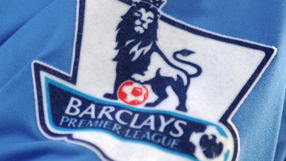Portugal should follow Premier League example

"Today we have a monopoly where one operator - Olivedesportos' PPTV - has the rights to all the games and platforms, this goes against European competition law," Figueiredo told Reuters in his first interview since the Portugal's top league was controversially expanded to 18 teams on Monday.
"We want there to be different game packages and that not all of them can be sold to the same operator."
Figueiredo, who is considering filing a complaint to the European Union to try to end the current TV rights practice that favours the bigger clubs, added in the telephone interview: "The English Premier League started working on this in 1991, we are 20 years late but need to go on and do it.
"We must empower our football factory. The business as it is now is modeled to protect those who always win and that is ruining the show."
In Portugal around 70 percent of the broadcasting rights revenues estimated at around 75 million euros go to the so-called "big-three" - Benfica, Sporting and Porto - as TV contracts are negotiated on a club-by-club basis.
Figueiredo wants the LPFP to be the single negotiator of TV rights for all of the Portuguese Premier League and said such a practice would could double a club's revenue and give a big boost to their ailing finances, hit heavily by the country's sovereign debt crisis.
"This is all about the sustainability of football and its financing. With the ongoing crisis we need to organise ourselves."
The best features, fun and footballing quizzes, straight to your inbox every week.
With Porto and Benfica not backing the move to collective selling, Figueiredo gave the example of Manchester United, saying they have consistently defended England's centralised TV rights model and have benefited from it.
TECHNICALLY BROKE
While Portugal's top clubs able to shield themselves from the cash crisis thanks to high-profile player transfers, the financial plight of mid- and lower-tier clubs is threatening the sustainability of the sport.
"All of the clubs that go down to Liga Orangina (second division) are technically broke because of the financing model which is not thought of as a whole."
Clubs in Portugal's second division earn an average of 150,000 euros a year for TV rights revenue while those in the Premier League get around 1.7 million euros.
He also said that the game was not being marketed adequately.
"If you go ask clubs or even the LPFP if we know in what TV channels or in what countries Portuguese football is being televised we can't answer; that is unacceptable. We are not managing, marketing or keeping track of our great product properly."
Porto and Sporting reacted angrily to the Premier League's expansion plans, which means the bottom two teams will avoid relegation this season.
"The decision to have no teams demoted, a usual assurance of the integrity and stability of the sport, was the cherry on top of a cake of stupidity," Porto wrote in a statement on Tuesday.
"This changes the
 Join The Club
Join The Club





